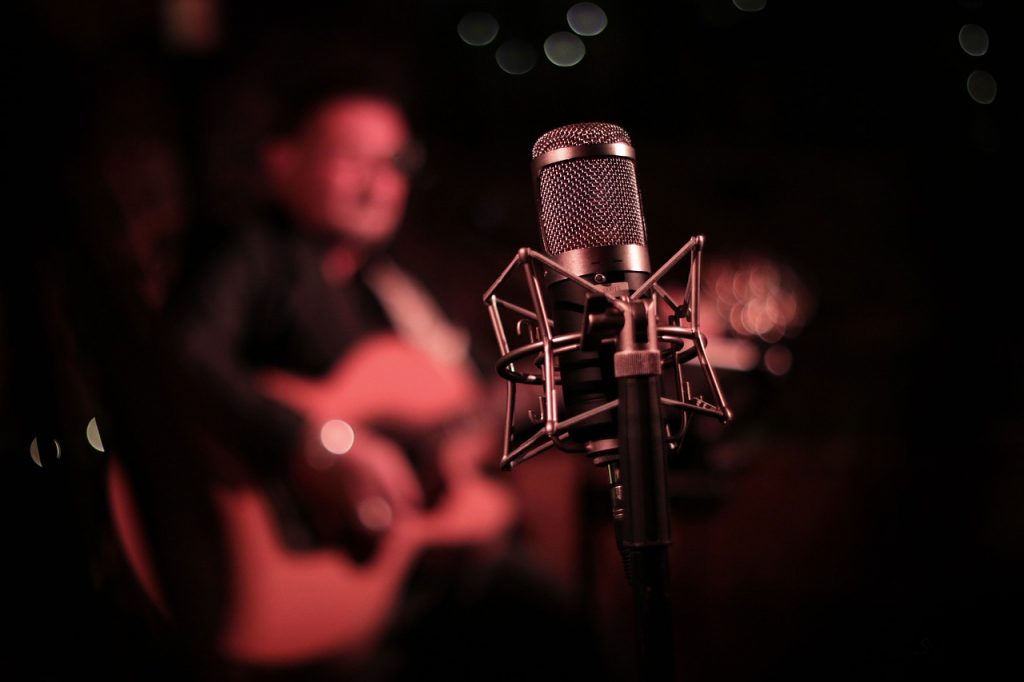“Straight Lines” by Harriet Schock

December 20, 2019 – Los Angeles: The shortest distance between two points is a straight line. Isn’t that what we learned in school? And it applies to communication, too. Isn’t that what songwriting is? I find that when people communicate in a straight line, it has greater emotional impact on the listener. Would a bullet that ricocheted off someone else hit you as hard? Would you go from L.A. to New York by way of Miami?
By straight lines of communication, of course, I don’t mean obvious lines, clichés, or obvious ways of saying things. I mean that when you have something to communicate, musically and/or lyrically, and you put it there in the listener’s ear with the precision and power of a laser beam, it will have more impact than if you pitched it out there somewhere in the vicinity of your listener. I call this second, meandering kind of communication “crooked lines”. They create vagueness, confusion and, invariably, the listener will tune you out. Just go to an open mike sometimes and watch the audience. They’ll listen to the singer for the first few lines and if the melody or lyric has these meandering qualities, the audience gets immediately bored and starts talking amongst themselves.
So what causes their crooked lines of communication? Lack of craft, naturally. But I consider that a catch-all phrase that actually has a lot of causes. I’ve worked with so many songwriters, I’m amazed at how I can say the very same thing to two of them and they’ll hear two entirely different things. One of them—I’ll call him the straight writer—will interpret what I say as II mean it and bring back exactly what I ask for. When I critique his work, he gets it and improves his song with every rewrite, learning principles of songwriting as he works on each song. Teaching such a person is a joy. It’s as if there’s nothing in the way between my words and his mind, between his mind and his actions—the creative process is unencumbered.
Teaching the crooked writer is more of a challenge. He may have the same native intelligence, but there’s something in his personality that keeps him from communicating in a straight line. Or even hearing in a straight line. When you tell him something, he’ll hear it slightly altered. His chord changes are often arbitrary and his melodies usually lack a sense of inevitability that makes people want to listen to them again and again. His lyrics will be clear to him, because he’s familiar with his story, but he’ll be unaware that he’s not telling it to anyone in a language they can grasp. At best, he will become a competent writer, but he’ll never change anyone’s life with his songs—not even his own. I was talking to John Braheny about this and he told me he had consulted with someone who was afraid to write what she really felt for fear her husband would see it and realize how unhappy she was. On the surface, it might seem like this writer’s marriage was holding her back. No way! Her fear of communicating was keeping her from using songwriting for one of its best purposes: telling someone what you’re uncomfortable telling them face to face. She was losing a golden opportunity!
I won’t mention specific situations I have encountered, but I have some of the best writers I have ever heard studying with me. I also teach people who could be great, but something is keeping them from being straight shooters. Either they’re doing something in their lives that they feel creepy about, so they’re hiding everything—including what they’re trying to say in their songs or they’re taking some drug that’s altering their personality in some way—the lines get really crooked when that happens. And because I am extremely outspoken about this, we generally decide not to work together once that’s revealed. Or, sometimes the person is just afraid. Afraid of change, afraid of rejection. Afraid of life, pretty much. And since communicating is the most dangerous thing going on, they opt not to do it. They go through the motions, but they’re not communicating. Not really.
Ironically, the kind of blind spot that burdens the crooked writer is usually so huge, he never thinks about studying with anyone, anyway.
He figures he knows it all and stardom is imminent. The good news is that the process of songwriting itself can begin to reverse the downward spiral in a person’s life that’s blinding him. Provided he’s not too far gone and not chemically altered, he can dig his way out of the hole by communicating honestly about the unhappy marriage, or he can reveal those things about himself he was afraid to look at yesterday. Or he can grieve over the loss of a loved one by sitting down at the piano and letting it pour out.
If this sounds foreign to you, then you’ve been missing one of the main benefits of our art form. It can relieve a pain of the heart better than any whiskey and it can “shower the people you love with love” better than roses. After a few years of doing it with courage and honesty, your lines will be a lot straighter and your songs will probably be a lot shorter. And so will the distance between you and where you want to be.
© Harriet Schock Harriet Schock is a multi-platinum songwriter/recording artist. Her songs have been recorded my numerous artists, nominated for a Grammy and used in films and TV. Her fourth, fifth and sixth CDs, “American Romance,” “Rosebud” and “Harriet Schock Live” are in current release, as well as her book, BECOMING REMARKABLE, published by Blue Dolphin. As well as performing worldwide, she speaks, teaches and consults in person and via the internet. For further information about her book, CDs, concerts or consultation or classes, go to http://www.harrietschock.com/ or call (323) 934-5691.
